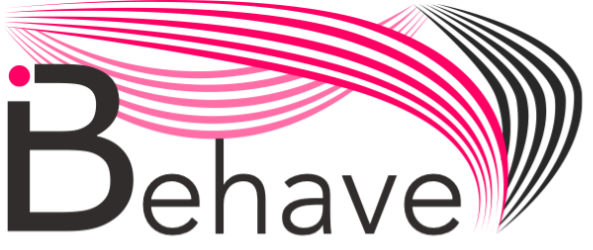Extended network of iBehave
The extended network of iBehave refers to the broadened scope and reach of the network beyond its core institutions. This includes collaborations with other institutions, researchers, and organizations in the fields of neuroscience, brain and behavior research, and computational neuroscience. By leveraging this extended network, iBehave is able to access a wider range of expertise, resources, and perspectives, which enhances its scientific excellence and the impact of its research.
i) Network of Infrastructure:
This section provides a concise overview of the institutions and research centers that constitute the extended network of iBehave, along with their relevant expertise and infrastructure that are expected to contribute to the project.
- The Bonn-Aachen International Center for Information Technology (b-it) is a research center focused on data science and its applications in various fields, including life sciences.
- The Juelich-Aachen Research Alliance Brain (JARABRAIN) is a collaboration between RWTH Aachen University and the Juelich Research Center, focused on translational neurobiology. They provide access to advanced infrastructure such as high-performance computing clusters.
- The West German Genome Center is a Next Generation Sequencing Competence Center, which is a partnership between the University of Cologne, University of Bonn, RWTH Aachen University, and the German Center for Neurodegenerative Diseases (DZNE).
- The Stem Cell Network NRW is a consortium focused on promoting biomedical stem cell research, involving the University of Cologne, University of Bonn, and RWTH Aachen University.
- Finally, the Bonn Technology Campus (BTC) Life Sciences is a technology hub established by the University of Bonn, with involvement from the DZNE in governance and technology acquisition.
ii) Education Network:
The Network of Education in iBehave refers to the various educational and training programs that are available through the participating institutions. These programs are designed to train students and researchers in the field of neuroscience, brain and behavior research, and computational neuroscience.
The International Max Planck Research School IMPRS ‘Brain and Behavior’ is a graduate school that includes faculty members from the Max Planck Institute for Neurobiology of Behavior – caesar, DZNE, University of Cologne, and University of Bonn. This school offers training for PhD students in neuroscience research.
The Bonn International Graduate School (BIGS) Neuroscience is another graduate school that includes faculty members from University of Bonn, Max Planck Institute for Neurobiology of Behavior – caesar, and DZNE. This school also offers training for PhD students in neuroscience research.
The Master of Computational Life Sciences program is a joint program offered by the University of Bonn and RWTH, and is organized by the Bonn-Aachen International Center for Information Technology (b-it). This program is designed to train students in the field of computational neuroscience.
In addition, the iBehave PIs from RWTH and Juelich have established the DFG-funded research training group for PhD students GRK2416, which provides additional training opportunities for PhD students in neuroscience research.
The University of Bonn is a founding member of the European initiative Neurotech-EU, which is a larger initiative that seeks to incorporate all iBehave institutions and activities.
iii) Network of research consortia:
Over the course of several years, the iBehave network’s principal investigators (PIs) have collaborated on various research projects. Additionally, the PIs are involved in multiple research consortia listed below.
▪ The SFB1089 research consortium, which focuses on synaptic microcircuits in health and disease, was established in 2013 with the University of Bonn, Max Planck Institute for Neurobiology of Behavior – caesar, DZNE, and University of Cologne as partners.
▪ The SFB1451 consortium, which focuses on key mechanisms of motor control in health and disease, is led by the University of Cologne and brings together iBehave PIs from Juelich and DZNE since 2021.
▪ The SPP2041 consortium, which focuses on computational connectomics, has Max Planck Institute for Neurobiology of Behavior – caesar and University of Bonn PIs contributing to three subprojects.
▪ The SPP2205 consortium, which focuses on evolutionary optimization of neuronal processing, brings together iBehave PIs from the University of Bonn, University of Cologne, and RWTH.
▪ The DFG research unit FOR2715, which focuses on genetic epilepsies, integrates PIs from the University of Bonn and University of Cologne.
▪ The FOR2705 consortium, which focuses on dissection of brain circuit structure, plasticity, and behavioral function, comprises iBehave PIs from the University of Bonn, University of Cologne, and DZNE.
▪ The International NeuroNex program, supported by the DFG, has the lead partner University of Cologne interacting with the University of Bonn.
▪ The DFG Research Training Group 2416, which focuses on multisenses-multiscales, has PIs from RWTH and Juelich collaborating.
▪ The DFG Research Training Group 2150, which focuses on the neuroscience of modulating aggression and impulsivity in psychopathology, integrates RWTH and Juelich PIs.
▪ SmartStart, a joint training program by the Volkswagen Stiftung, brings together theory PIs from the University of Bonn and University of Cologne.
▪ iBehave PIs have launched new initiatives, including an application for a ‘Konrad Zuse School of Excellence in Artificial Intelligence for Sustainable Engineering’ with the University of Bonn and RWTH, ‘Treat-ION‘ with DFG, University of Bonn, and University of Cologne, and SPP2423 ‘Neuron-glia assemblies as drivers of Behavior’ with the University of Bonn and MPINB.
These consortia showcase a collaborative effort among iBehave PIs and their partners in various research consortia, all working towards a better understanding of the brain and behavior.
iv) Network fostered by joint appointments:
The iBehave program involves joint appointments between several of the partners. This means that some of the iBehave PIs have primary affiliations with one partner institution and secondary affiliations with another partner institution.
- D. Isbrandt: DZNE/University of CologneF. Bradke, M. Fuhrmann, A. Schneider and J. Faber: DZNE/University of Bonn
- G. Tavosanis: DZNE/University of RWTH Aachen
- J. Kerr: Max Planck Institute for Neurobiology of Behavior – caesar/University of Bonn
- K. Briggman: Max Planck Institute for Neurobiology of Behavior – caesar/University of Bonn (in progress)
- H. Beck and S. Poll: University of Bonn/DZNE
- G. Fink: University of Cologne/Juelich
- S. Musall, S. Grün and B. Kampa: Juelich/RWTH

